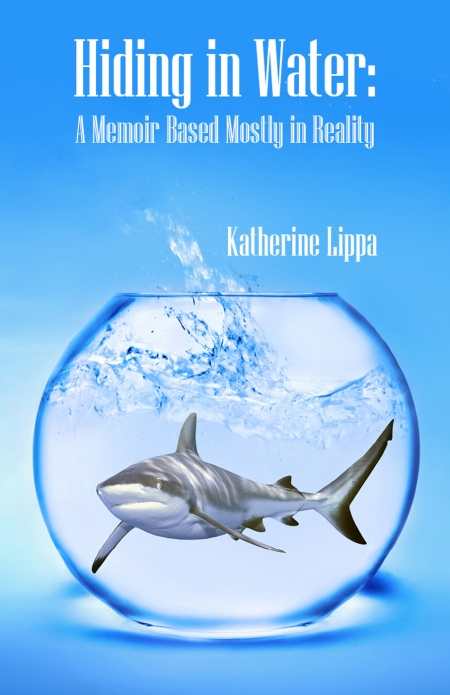
Hiding in Water
A Memoir Based Mostly in Reality
- 2013 INDIES Finalist
- Finalist, Autobiography & Memoir (Adult Nonfiction)
Had Katherine Lippa’s life been normal by traditional standards, readers of her Hiding in Water: A Memoir Based Mostly in Reality might have been deprived of her wicked wit, her skewed way of interpreting cause and effect, and her refreshing candor about reconciling religious beliefs with reality.
It’s a fact of life that people don’t get to choose their families. Were that possible, one would have to wonder whether Lippa would opt for a father who wasn’t allegedly a prophet from another planet, a mother who wasn’t perpetually morose, and an older brother who didn’t engage in violent and perverse acts.
This bittersweet retrospective of a dysfunctional upbringing will resonate with those who have wished they could trade their family members in for a new set that wouldn’t embarrass, terrify, confuse, or sadden them. Themes of empowerment, redemption, and sibling dynamics figure prominently within Lippa’s exceptionally crisp wordsmithery as she exposes the volatile consequences of favoritism, denial, and indifference.
Lippa candidly acknowledges that “there is something inherently fallible in the craft of memoir,” and she draws on an engaging combination of the four years of journal entries she began at age ten and the remembrances of those who either shared her experiences or were sideline observers. Lippa’s skill as a raconteur reflects that much of her quirky childhood was spent believing her actions could influence global events if she could just harness her mind’s psychic powers, a suggestion planted by her free-spirited, cult-leader father during the ’60s and ’70s.
The writing here captures the myopic, guilt-riddled angst of childhood, especially when Lippa compares the Iranian hostage crisis to her parents’ bitter separation: “I viewed the hostages’ plight as far more dramatic than my own, but I had made the somewhat anachronous decision that if they were released, my father would come back.” Raw authenticity underscores Lippa’s disclosure that she believed it was her fixated jealousy toward media darling and young peace activist Samantha Smith that contributed to the latter’s tragic death. “I tried to will a reversal of time,” Lippa writes. “I would go back and have a do-over. This time I wouldn’t wish her dead, and she would live.”
Lippa whimsically articulates her fourth-grade aspirations to become “a writer of books, a famous actress, a good witch with real magical powers, and a savior of the world.” Her breezy, conversational writing style shows her to be as unapologetic about her conflicted spiritual beliefs—and her disappointment over unanswered prayers for invisibility and the power to fly—as she is compassionate toward victims of HIV/AIDS and open-minded about same-sex relationships.
The chapters are well organized and cleverly titled, and the whimsical cover art embraces Lippa’s fascination with magic tricks, her tank-shark pet named Norman, and the human mystery that there is always much more lurking beneath the surface than we realize from first impressions.
Reviewed by
Christina Hamlett
Disclosure: This article is not an endorsement, but a review. The publisher of this book provided free copies of the book and paid a small fee to have their book reviewed by a professional reviewer. Foreword Reviews and Clarion Reviews make no guarantee that the publisher will receive a positive review. Foreword Magazine, Inc. is disclosing this in accordance with the Federal Trade Commission’s 16 CFR, Part 255.
